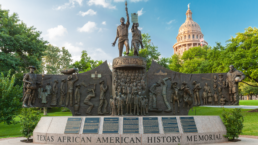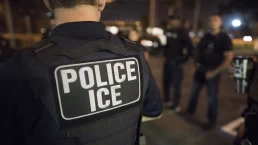The holiday is the truest Independence Day we have, so we should teach its origins.
By Rann Miller, The Progressive Magazine
On July 19, 2021, President Joe Biden signed into law a bill declaring Juneteenth a federal holiday—exactly one month and 156 years after Union troops entered Galveston, Texas, toppling the last Confederate stronghold.

While memorializing Juneteenth as a national holiday was long overdue, we shouldn’t forget that the celebration’s roots are in Texas, where the largest population of Black people in the United States currently live. For Black Texans, Juneteenth holds a special significance that’s worth learning and, if you’re educator like myself, teaching.
Although the Emancipation Proclamation freed all enslaved Black people in Confederate states in 1863, the Union had not yet swept far enough into the Deep South to fully enforce it. It wasn’t until two years later, on June 18, that Union Army General Gordon Granger arrived in Galveston to occupy Texas and announced, the following day, that all enslaved people were free.
This history explains part of the reason why Galveston became the center of Juneteenth commemorations, but it’s also because the city was a major slave port. By 1860, Galveston was the most populated city in Texas, serving as a commercial hub within the Confederacy. Prior to the Union’s advance, almost every Black person in Galveston was enslaved, due to a de-facto law from 1836 that banned free Black people from residing in Texas. It was no accident that Granger chose the city of Galveston to make his decree.
Recent Posts
What To Do When You See ICE In Your Neighborhood
July 14, 2025
Take Action Now How can you deter the Trump administration’s immigrant deportation machine when it pops up in your community? Follow these…
ICE Campaign Of Violence Will Lead To More Deaths
July 14, 2025
Take Action Now Jaime Alanis’s death shows the horrific consequences of a secret police force behaving with utter impunity.By Natasha Lennard, The…
Hague Group: “Concrete Measures” or Sack of Cement? Will It Move to Sanctions, Peace Force and Ensuring Aid to Gaza?
July 13, 2025
Take Action Now Will the meeting in Colombia be a coalescence of global opinion driving states to just action — or just more rhetoric from various…
Why Are Democratic Lawmakers Still Meeting With Netanyahu?
July 12, 2025
Take Action Now Pictures show Democrats like Chuck Schumer standing next to Netanyahu, smiling.By Sharon Zhang, Truthout A bipartisan group of…




